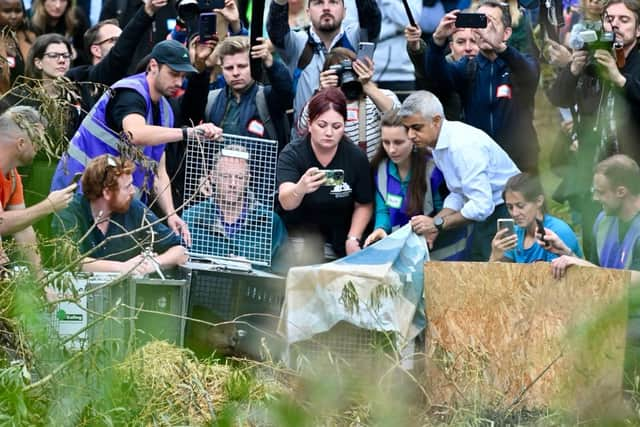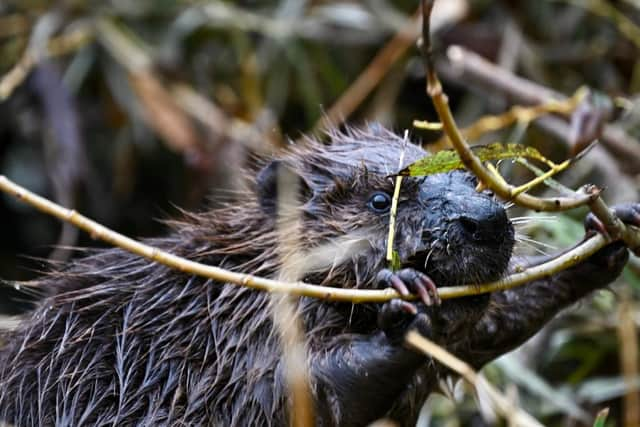Paradise Fields beavers: Sadiq Khan helps release West London's first family of beavers in 400 years
and live on Freeview channel 276
A family of beavers is calling West London's waterways home once more after a 400-year absence, as part of a bid to turn the site into a wildlife-friendly wetland.
On Wednesday morning (11 October), London Mayor Sadiq Khan helped release the five beavers at an event at Ealing's Paradise Fields, alongside representatives from the Ealing Wildlife Group, Citizen Zoo, Ealing Council, Friends of Horsenden Hill and Groundwork London. The project - supported by the Mayor’s Rewild London Fund - aims to transform the area into a flourishing wetland, in part to help mitigate the impacts of the climate crisis.
Advertisement
Hide AdAdvertisement
Hide AdBeavers were hunted to extinction in England around 400 years ago, but are now being reintroduced across the country. London's very first pair were released in the northern borough of Enfield last year, and the project has already paid dividends - with a brand new kit spotted paddling with its parents over the summer.


The aquatic rodents are important ecosystem engineers. The dams and canals they build create wetland habitats, which allow species like water voles, dragonflies, amphibians, waterfowl, reptiles and fish to flourish.
The Mayor's office say their project partners will study the beavers in their new environment, and will be monitoring the effects they have on water and flood levels and biodiversity in the area. Mayor Khan said: “I am delighted to welcome back beavers to West London for the first time in 400 years, with the support of my Rewild London Fund.
"We are facing climate and ecological emergencies worldwide, but we have the power to make a difference, and I am committed to ensuring that London is at the forefront of reversing the trends of declining biodiversity and the destruction of nature," he continued.


Advertisement
Hide AdAdvertisement
Hide Ad“I’m proud that we are turning London into a wildlife haven, as well as making the city more resilient to the effects of climate change, as we work to clean up our city, re-establish lost species and reconnect people and nature, building a greener, fairer city for all Londoners.”
Dr Sean McCormack, chair of the Ealing Wildlife Group, added: “It’s unbelievably exciting that after a lot of hard work and volunteer effort to make this happen, we’re welcoming beavers back to Ealing.
"We’re excited to show they can have benefits in the urban landscape, not only for wildlife but for people too," he said. "Their activities here over the coming years should provide some serious nature-based solutions to urban problems such as flooding. We’re also excited to see the wildlife that shows up on site and the effects that having nature on your doorstep can have for urban communities.”
The need for rewilding has never been greater, the Mayor's office said in a statement. The UK is one of the world's most nature-depleted countries, and this year's State of Nature report found that nearly one in six species in Great Britain is at immediate risk of extinction.
Advertisement
Hide AdAdvertisement
Hide AdKhan has encouraged more groups with biodiversity projects in mind to apply for the latest round of Rewild London funding, which has just opened for bids. To date, the fund has provided £2.3 million to projects across the capital - and has helped to create or restore around 350 hectares of wildlife habitat.
A new interactive map - London is Wild and Free - is now available online, so Londoners can more easily find out about the improved green spaces near them.
Comment Guidelines
National World encourages reader discussion on our stories. User feedback, insights and back-and-forth exchanges add a rich layer of context to reporting. Please review our Community Guidelines before commenting.
